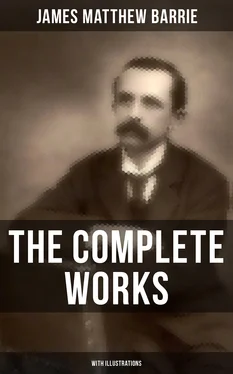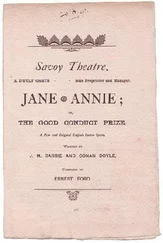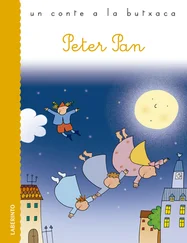Never was there a man more uncomfortably loved than Mr. Dishart. Easie Haggart, his maid-servant, reproved him at the breakfast-table. Lang Tammas and Sam'l Mealmaker crouched for five successive Sabbath nights on his manse wall to catch him smoking (and got him). Old wives grumbled by their hearths when he did not look in to despair of their salvation. He told the maidens of his congregation not to make an idol of him. His session saw him (from behind a haystack) in conversation with a strange woman, and asked grimly if he remembered that he had a wife. Twenty were his years when he came to Thrums, and on the very first Sabbath he knocked a board out of the pulpit. Before beginning his trial sermon he handed down the big Bible to the precentor, to give his arms freer swing. The congregation, trembling with exhilaration, probed his meaning. Not a square inch of paper, they saw, could be concealed there. Mr. Dishart had scarcely any hope for the Auld Lichts; he had none for any other denomination. Davit Lunan got behind his handkerchief to think for a moment, and the minister was on him like a tiger. The call was unanimous. Davit proposed him.
Every few years, as one might say, the Auld Licht kirk gave way and burled its minister. The congregation turned their empty pockets inside out, and the minister departed in a farmer's cart. The scene was not an amusing one to those who looked on at it. To the Auld Lichts was then the humiliation of seeing their pulpit "supplied" on alternate Sabbaths by itinerant probationers or stickit ministers. When they were not starving themselves to support a pastor the Auld Lichts were saving up for a stipend. They retired with compressed lips to their looms, and weaved and weaved till they weaved another minister. Without the grief of parting with one minister there could not have been the transport of choosing another. To have had a pastor always might have made them vainglorious.
They were seldom longer than twelve months in making a selection, and in their haste they would have passed over Mr. Dishart and mated with a monster. Many years have elapsed since Providence flung Mr. Watts out of the Auld Licht kirk. Mr. Watts was a probationer who was tried before Mr. Dishart, and, though not so young as might have been wished, he found favour in many eyes. "Sluggard in the laft, awake!" he cried to Bell Whamond, who had forgotten herself, and it was felt that there must be good stuff in him. A breeze from Heaven exposed him on Communion Sabbath.
On the evening of this solemn day the door of the Auld Licht kirk was sometimes locked, and the congregation repaired, Bible in hand, to the commonty. They had a right to this common on the Communion Sabbath, but only took advantage of it when it was believed that more persons intended witnessing the evening service than the kirk would hold. On this day the attendance was always very great.
It was the Covenanters come back to life. To the summit of the slope a wooden box was slowly hurled by Hendry Munn and others, and round this the congregation quietly grouped to the tinkle of the cracked Auld Licht bell. With slow majestic tread the session advanced up the steep common with the little minister in their midst. He had the people in his hands now, and the more he squeezed them the better they were pleased. The travelling pulpit consisted of two compartments, the one for the minister and the other for Lang Tammas, but no Auld Licht thought that it looked like a Punch and Judy puppet show. This service on the common was known as the "tent preaching," owing to a tent's being frequently used instead of the box.
Mr. Watts was conducting the service on the commonty. It was a fine, still summer evening, and loud above the whisper of the burn from which the common climbs, and the laboured "pechs" of the listeners rose the preacher's voice. The Auld Lichts in their rusty blacks (they must have been a more artistic sight in the olden days of blue bonnets and knee-breeches) nodded their heads in sharp approval, for though they could swoop down on a heretic like an eagle on carrion, they scented no prey. Even Lang Tammas, on whose nose a drop of water gathered when he was in his greatest fettle, thought that all was fair and above-board. Suddenly a rush of wind tore up the common, and ran straight at the pulpit. It formed in a sieve, and passed over the heads of the congregation, who felt it as a fan, and looked up in awe. Lang Tammas, feeling himself all at once grow clammy, distinctly heard the leaves of the pulpit Bible shiver. Mr. Watts's hands, outstretched to prevent a catastrophe, were blown against his side, and then some twenty sheets of closely-written paper floated into the air. There was a horrible, dead silence. The burn was roaring now. The minister, if such he can be called, shrunk back in his box, and, as if they had seen it printed in letters of fire on the heavens, the congregation realized that Mr. Watts, whom they had been on the point of calling, read his sermon. He wrote it out on pages the exact size of those in the Bible, and did not scruple to fasten these into the Holy Book itself. At theatres a sullen thunder of angry voices behind the scene represents a crowd in a rage, and such a low, long-drawn howl swept the common when Mr. Watts was found out. To follow a pastor who "read" seemed to the Auld Lichts like claiming heaven on false pretences. In ten minutes the session alone, with Lang Tammas and Hendry, were on the common. They were watched by many from afar off, and (when one comes to think of it now) looked a little curious jumping, like trout at flies, at the damning papers still fluttering in the air. The minister was never seen in our parts again, but he is still remembered as "Paper Watts."
Mr. Dishart in the pulpit was the reward of his upbringing. At ten he had entered the university. Before he was in his teens he was practising the art of gesticulation in his father's gallery pew. From distant congregations people came to marvel at him. He was never more than comparatively young. So long as the pulpit trappings of the kirk at Thrums lasted he could be seen, once he was fairly under weigh with his sermon, but dimly in a cloud of dust. He introduced headaches. In a grand transport of enthusiasm he once flung his arms over the pulpit and caught Lang Tammas on the forehead. Leaning forward, with his chest on the cushions, he would pommel the Evil One with both hands, and then, whirling round to the left, shake his fist at Bell Whamond's neckerchief. With a sudden jump he would fix Pete Todd's youngest boy catching flies at the laft window. Stiffening unexpectedly, he would leap three times in the air, and then gather himself in a corner for a fearsome spring. When he wept he seemed to be laughing, and he laughed in a paroxysm of tears. He tried to tear the devil out of the pulpit rails. When he was not a teetotum he was a windmill. His pump position was the most appalling. Then he glared motionless at his admiring listeners, as if he had fallen into a trance with his arm upraised. The hurricane broke next moment. Nanny Sutie bore up under the shadow of the windmill—which would have been heavier had Auld Licht ministers worn gowns—but the pump affected her to tears. She was stone-deaf.
For the first year or more of his ministry an Auld Licht minister was a mouse among cats. Both in the pulpit and out of it they watched for unsound doctrine, and when he strayed they took him by the neck. Mr. Dishart, however, had been brought up in the true way, and seldom gave his people a chance. In time, it may be said, they grew despondent, and settled in their uncomfortable pews with all suspicion of lurking heresy allayed. It was only on such Sabbaths as Mr. Dishart changed pulpits with another minister that they cocked their ears and leant forward eagerly to snap the preacher up.
Mr. Dishart had his trials. There was the split in the kirk, too, that comes once at least to every Auld Licht minister. He was long in marrying. The congregation were thinking of approaching him, through the medium of his servant, Easie Haggart, on the subject of matrimony; for a bachelor coming on for twenty-two, with an income of eighty pounds per annum, seemed an anomaly, when one day he took the canal for Edinburgh and returned with his bride. His people nodded their heads, but said nothing to the minister. If he did not choose to take them into his confidence, it was no affair of theirs. That there was something queer about the marriage, however, seemed certain. Sandy Whamond, who was a soured man after losing his eldership, said that he believed she had been an "Englishy"—in other words, had belonged to the English Church; but it is not probable that Mr. Dishart would have gone the length of that. The secret is buried in his grave. Easie Haggart jagged the minister sorely. She grew loquacious with years, and when he had company would stand at the door joining in the conversation. If the company was another minister, she would take a chair and discuss Mr. Dishart's infirmities with him. The Auld Lichts loved their minister, but they saw even more clearly than himself the necessity for his humiliation. His wife made all her children's clothes, but Sanders Gow complained that she looked too like their sister. In one week three of the children died, and on the Sabbath following it rained. Mr. Dishart preached, twice breaking down altogether and gaping strangely round the kirk (there was no dust flying that day), and spoke of the rain as angels' tears for three little girls. The Auld Lichts let it pass, but, as Lang Tammas said in private (for, of course, the thing was much discussed at the looms), if you materialize angels in that way, where are you going to stop?
Читать дальше












